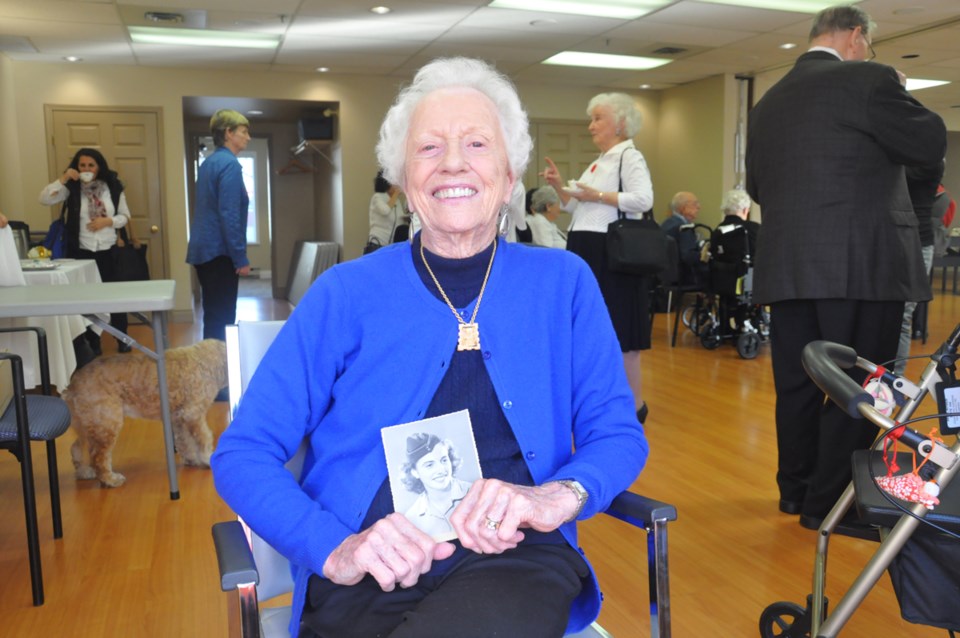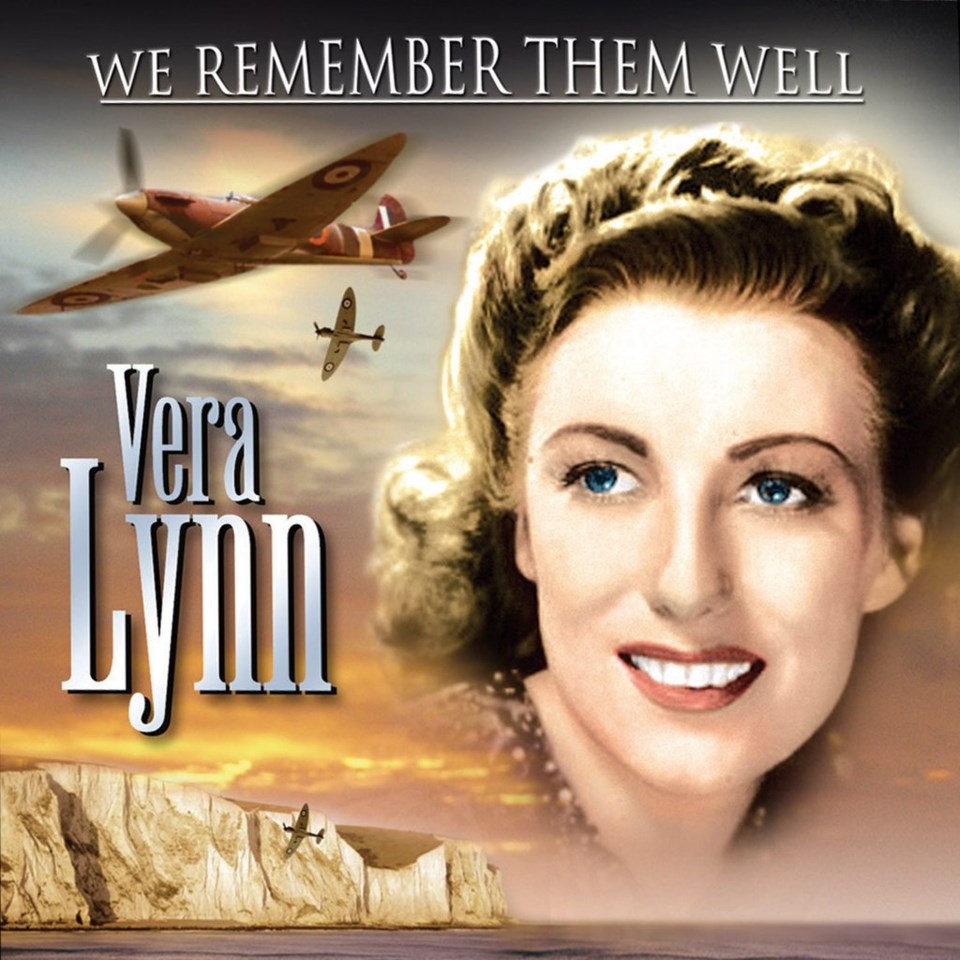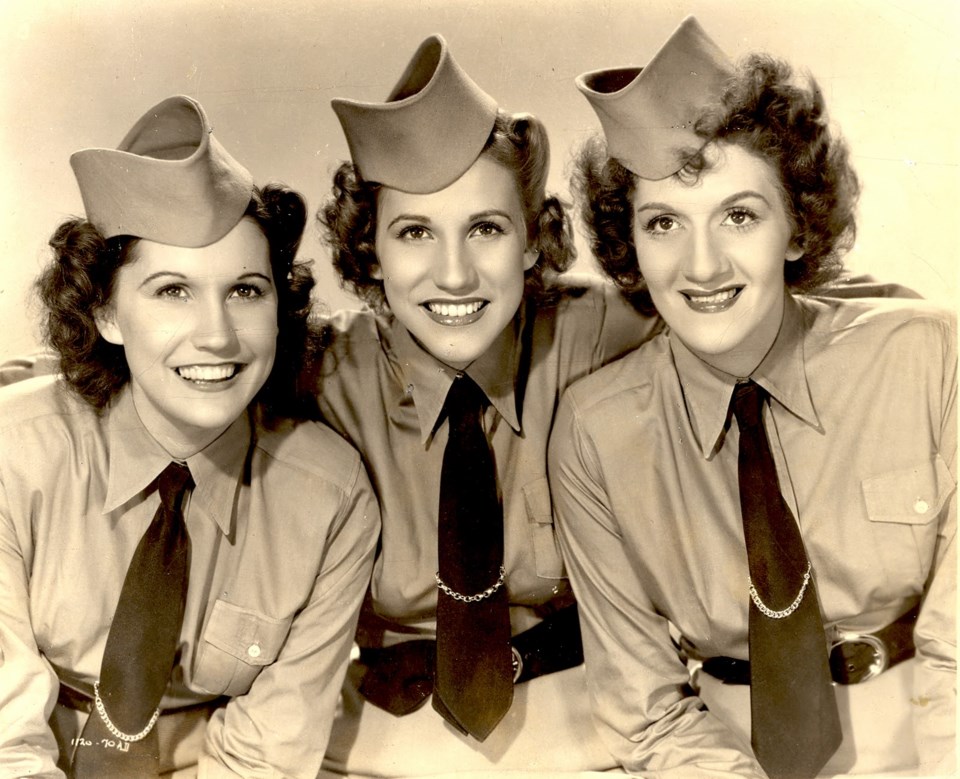“I’ll be seeing you,
In every lovely summer’s day,
In everything that’s light and gay,
I’ll always think of you that way…”
It was one of the most popular wartime songs, White Cliffs of Dover, being performed at Courtyard Gardens Retirement Residence last Wednesday.
The performance room was full of poignant music, along with laughter and tears.
It was a special concert given by the Minoru Seniors’ Centre glee club. All the songs performed were from the First and Second World War, when soldiers left their loved ones to fight for their countries.
More than 50 seniors, including Second World War veterans, attended the concert. They were singing along with the choir to popular songs of the day such as I’ll see you again and Land of Hope and Glory, all of which brought tears to the audience’s eyes.
In the end, everyone in the room stood up and sang together, when the choir performed White Cliffs of Dover, a song dreaming about a time when the war would be over and peace would rule over the iconic white cliffs of Dover (Britain’s symbolic border with the European mainland).
“It’s nice for them to get a chance to sing it. It brings back their memories,” said Nan Baardsen, music director of the glee club.
“Lots of songs are very sad and make people cry, but it’s also good for them. It’s their memories; they are part of them,” said Baardsen.
War-time music is not unfamiliar to Baardsen, 91, who was a teenager in Scotland when WWII broke out. Her father, sister and two brothers served in the war, and one of her brothers was kept in an Egyptian camp for four years.
“That was the biggest grief for my family,” said Naardsen. “War is horrible.”
Some songs reflect Baardsen’s own experience during that difficult time, when people dealt with the cruel reality with a positive attitute and a hint of humor, such as the song I did what I could with my gas mask (1941):
“Now I’m getting very fond of my gas mask I declare,
It hardly ever leaves my sight,
I sling it on my back and I take it everywhere,
It even comes to bed at night…”

Naardsen recalled, “Everybody was carrying a gas mask every day in fear of gas bombing. Some girls made fancy bags for the masks and carried them around like a purse.”
Among the audience was Anna Paul, a veteran who served the British Army with Auxiliary Territory Service from 1944 to 1947, during which she was deployed to India on a troop ship.
“The songs make me want to cry,” said Paul. “It’s very sad to listen to them. So many people were killed.”
Paul’s father was a sea captain during the war, bringing supplies back and forth across the Atlantic Ocean.
“It was extremely dangerous. If one ship sank, others couldn’t stop for them; they had to keep going.”
“The songs were very important to the force. They made the soldiers patriotic and cheered them up.”
Music helps us remember
“Music has always been part of the war,” said Sherrill Grace, a retired English professor from the University of B.C.
“It kept the troops going, raised the spirit of people who have lost their homes and kept them fighting for the war.”
She said music is a way to connect with people and take them away from the brutal reality at that moment.
“You don’t want people to think about the war. You don’t want the soldiers thinking that they were marching to their deaths.”
She said many famous songs began with the First World War, and were brought back during the Second World War then became wide-spread thanks to radio.

“By the time of the Second World War, radios were everywhere; It was what people tuned in to; it was what disseminated the music and news,” said Grace.
Vera Lynn was one of the most famous singers of that time and was called “Sweetheart of the troops”.
“Vera Lynn had a beautiful voice; her songs were very patriotic and emotional, and were heard on radios in all English speaking countries.
“Songs like Keep the home fires burning will bring tears in your eyes,” said Grace.

“And you can’t talk about war-time music without mentioning Lili Marlene, she added.
It’s a song about a woman who was waiting at the gate for the man she loves to come and see her.
“I’m not going to sing it, because I think I will cry. The songs are so personal and appalling. You can’t capture it with the word, you have to hear the singing.”
Grace believes the wartime music still plays an essential role today to remind people of the past.
“We should never forget,” said Grace.
“It’s even more important for young people to listen to the music and know the stories. Forgetting is the worst thing...and music helps us remember.”
Top 10 Wartime Songs
- We’ll Meet Again
- White Cliffs of Dover
- In the Mood
- I’ll Be Seeing You
- Boogie Woogie Bugle Boy
- White Christmas
- The Lambeth Walk
- Gonna Take A Sentimen tal Journey
- Begin the Beguine
- Lili Marleen



